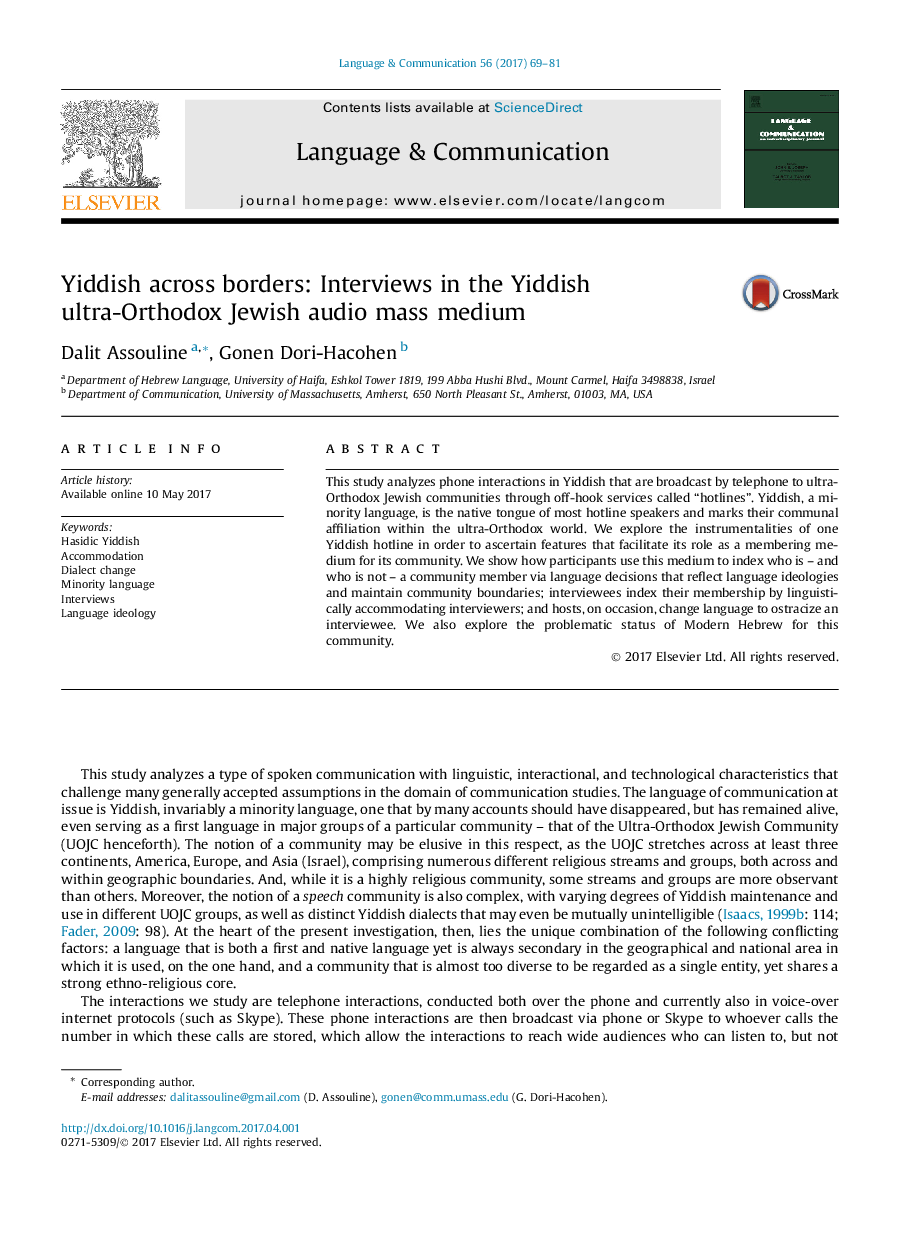| Article ID | Journal | Published Year | Pages | File Type |
|---|---|---|---|---|
| 5042888 | Language & Communication | 2017 | 13 Pages |
â¢We study Yiddish interviews broadcast by phone to ultra-Orthodox Jewish communities.â¢Yiddish has symbolic value as the unifying language of a Hasidic global community.â¢Language choices in the interviews index who is (and who is not) a community member.â¢Interviews reflect the problematic status of Modern Hebrew for this community.
This study analyzes phone interactions in Yiddish that are broadcast by telephone to ultra-Orthodox Jewish communities through off-hook services called “hotlines”. Yiddish, a minority language, is the native tongue of most hotline speakers and marks their communal affiliation within the ultra-Orthodox world. We explore the instrumentalities of one Yiddish hotline in order to ascertain features that facilitate its role as a membering medium for its community. We show how participants use this medium to index who is - and who is not - a community member via language decisions that reflect language ideologies and maintain community boundaries; interviewees index their membership by linguistically accommodating interviewers; and hosts, on occasion, change language to ostracize an interviewee. We also explore the problematic status of Modern Hebrew for this community.
